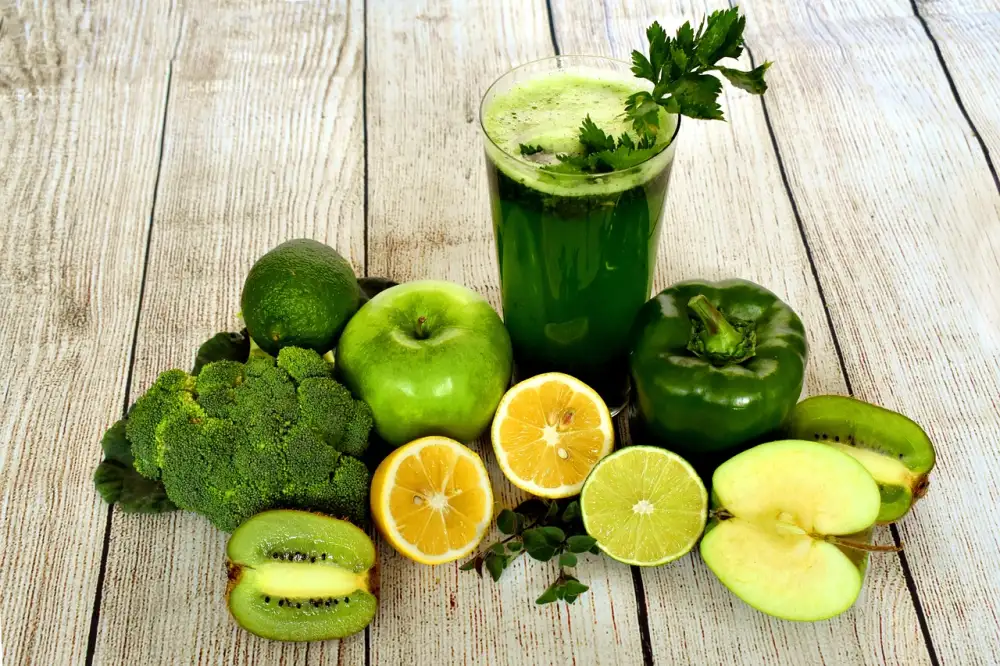Revitalize Your Health with a Juicy Transformation: The Ultimate Juice Diet Guide

The juice diet, also known as juicing or juice fasting, has gained popularity in recent years as a way to cleanse the body and promote weight loss. This diet involves consuming only fresh fruit and vegetable juices for a certain period of time, usually ranging from a few days to several weeks. The idea behind this diet is that by eliminating solid foods and focusing solely on nutrient-rich juices, you can give your digestive system a break and allow your body to detoxify and rejuvenate. In this article, we will explore the benefits of the juice diet, how to start it, choosing the right juices, incorporating solid foods, tips for success, potential risks, and why embracing the juice diet can lead to a healthier lifestyle.
Benefits of the Juice Diet
The Juice Diet offers a myriad of benefits for your health and well-being. Firstly, it provides a quick and efficient way to flood your body with essential vitamins, minerals, and antioxidants. These nutrients are easily absorbed by the body in juice form, allowing for optimal nutrient intake.
Additionally, the Juice Diet can aid in weight loss. By replacing high-calorie meals with nutrient-dense juices, you can reduce your overall calorie intake while still providing your body with the necessary nutrients. This can lead to gradual and sustainable weight loss.
Moreover, juicing can improve digestion and promote detoxification. The high fiber content in fruits and vegetables helps cleanse the digestive system, while enzymes present in fresh juices support healthy gut flora.
Furthermore, the Juice Diet can boost energy levels and enhance mental clarity. The abundance of vitamins and minerals in juices nourishes the body at a cellular level, providing sustained energy throughout the day. This can result in increased productivity and improved cognitive function.
Lastly, juicing supports a healthy immune system. The antioxidants found in fruits and vegetables help strengthen the immune system by neutralizing harmful free radicals that contribute to illness and disease.
Incorporating the Juice Diet into your lifestyle can bring about numerous benefits for your overall health. From weight loss to improved digestion to increased energy levels, juicing is a powerful tool for revitalizing your health from within.
How to Start a Juice Diet
Starting a juice diet is an exciting and transformative journey towards better health. Here are some steps to help you get started:
1. Set your goals: Determine why you want to start a juice diet. Whether it's for weight loss, detoxification, or simply improving your overall well-being, having a clear goal will keep you motivated.
2. Do your research: Learn about different types of juices and their benefits. Look for recipes that align with your goals and taste preferences. Consider consulting a nutritionist or doctor for personalized advice.
3. Invest in a juicer: To fully embrace the juice diet, it's essential to have a reliable juicer at home. Choose one that suits your needs and budget, ensuring it can extract maximum nutrients from fruits and vegetables.
4. Stock up on fresh produce: Visit local farmers' markets or grocery stores to buy a variety of fresh fruits and vegetables. Aim for organic options whenever possible to minimize exposure to pesticides.
5. Start slowly: Begin by replacing one meal or snack with a homemade juice each day. This gradual approach allows your body to adjust to the change while still receiving essential nutrients from solid foods.
6. Stay hydrated: Alongside consuming juices, remember to drink plenty of water throughout the day. Hydration is crucial for supporting digestion and flushing out toxins from your body.
7. Listen to your body: Pay attention to how you feel during the juice diet. If you experience any discomfort or adverse effects, consult a healthcare professional immediately.
By following these steps, you'll be well on your way to kick-starting your juice diet journey and revitalizing your health from within!
Choosing the Right Juices for Your Diet
When embarking on a juice diet, it's crucial to choose the right juices that will provide you with the necessary nutrients and support your health goals. Here are some tips to help you make the best choices:
1. Opt for Freshly Squeezed: Freshly squeezed juices are packed with enzymes, vitamins, and minerals. They have higher nutritional value compared to store-bought juices.
2. Variety is Key: Incorporate a wide range of fruits and vegetables into your juice diet to ensure you get a diverse array of nutrients. Include leafy greens like kale or spinach, along with fruits like apples, oranges, and berries.
3. Go Organic: Whenever possible, choose organic produce for juicing. This ensures that you're consuming fruits and vegetables free from harmful pesticides and chemicals.
4. Balance Sweetness: While fruits add natural sweetness to your juices, be mindful of their sugar content. Aim for a balance between sweet fruits and low-sugar options like cucumber or celery.
5. Consider Your Goals: If weight loss is your goal, opt for juices that are lower in calories and higher in fiber content. For detoxification purposes, include ingredients like lemon or ginger in your juices.
Remember to listen to your body's needs and preferences when selecting juices for your diet. Experiment with different combinations to find what works best for you while keeping in mind the nutritional value each juice provides.
Incorporating Solid Foods into Your Juice Diet
While the juice diet primarily focuses on consuming fresh juices, it is important to gradually incorporate solid foods to ensure a balanced and sustainable approach. Here are some tips to help you navigate this transition:
1. Start with light, easily digestible foods: Begin by introducing fruits and vegetables that are easy on your digestive system, such as steamed or raw vegetables, salads, and soups. These foods will provide essential nutrients while still allowing your body to adjust.
2. Include lean proteins: As you progress in your juice diet journey, consider adding lean proteins like grilled chicken, fish, or tofu to your meals. These protein sources will help maintain muscle mass and keep you feeling satisfied.
3. Choose whole grains: Incorporate whole grains like quinoa, brown rice, or oats into your meals. They provide fiber and complex carbohydrates that promote satiety and support healthy digestion.
4. Opt for healthy fats: Include sources of healthy fats in your diet such as avocados, nuts, seeds, and olive oil. These fats are essential for nutrient absorption and provide a feeling of fullness.
5. Stay hydrated: Even though you are consuming juices regularly, it is crucial to stay hydrated by drinking water throughout the day. This will aid digestion and prevent dehydration.
Remember that the goal is to find a balance between juicing and solid foods that works best for your body. Pay attention to how different foods make you feel and adjust accordingly. By incorporating solid foods mindfully into your juice diet, you can create a sustainable eating plan that nourishes both your body and soul.
Tips for a Successful Juice Diet
1. Start slow: Ease into the juice diet by gradually replacing one meal with a juice and then slowly increasing the number of juice meals per day. This will help your body adjust to the change.
2. Stay hydrated: In addition to consuming juices, make sure to drink plenty of water throughout the day. Hydration is key for optimal health and digestion.
3. Choose organic produce: When selecting fruits and vegetables for juicing, opt for organic options whenever possible. This reduces exposure to pesticides and ensures you're getting the most nutrients from your juices.
4. Mix it up: Experiment with different combinations of fruits and vegetables to keep your taste buds excited. Variety not only adds flavor but also provides a wider range of nutrients.
5. Listen to your body: Pay attention to how you feel during the juice diet. If you experience any discomfort or unusual symptoms, consult a healthcare professional.
6. Plan ahead: Prepare your juices in advance to ensure you have them readily available when hunger strikes. This will help prevent reaching for unhealthy snacks or convenience foods.
7. Support your detoxification process: Incorporate detoxifying ingredients like lemon, ginger, and leafy greens into your juices to aid in cleansing your system.
8. Seek guidance if needed: If you're unsure about starting a juice diet or have specific health concerns, consult with a nutritionist or dietitian who can provide personalized advice and support.
By following these tips, you'll be well on your way to a successful juice diet that can revitalize your health and bring joy to every sip!
Potential Risks and Considerations
While the juice diet can offer numerous health benefits, it is important to be aware of potential risks and considerations before embarking on this journey. Here are a few things to keep in mind:
1. Nutrient Deficiency: Although juices are packed with vitamins and minerals, they may not provide all the nutrients your body needs. It is crucial to ensure you are getting a well-rounded diet by incorporating a variety of fruits, vegetables, and other whole foods.
2. Blood Sugar Levels: Some juices, particularly those made from high-sugar fruits, can cause a rapid spike in blood sugar levels. This can be problematic for individuals with diabetes or those who struggle with blood sugar regulation. It is advisable to consult with a healthcare professional before starting a juice diet if you have any concerns about your blood sugar levels.
3. Lack of Fiber: Juicing removes most of the fiber content from fruits and vegetables. While this can make digestion easier for some individuals, it may lead to digestive issues such as constipation for others. To combat this, consider adding fiber-rich foods like chia seeds or flaxseeds to your juices or incorporate whole fruits and vegetables into your diet.
4. Caloric Intake: Depending on the specific juice recipes you choose, you may consume significantly fewer calories than usual during a juice diet. This can result in weight loss, which may be desirable for some individuals but could be detrimental for others who require higher caloric intake due to their activity level or overall health status.
5. Sustainability: The juice diet is often used as a short-term cleanse or detox program rather than a long-term lifestyle change. It may not be sustainable in the long run due to its restrictive nature and potential nutrient deficiencies if followed for an extended period of time.
Before starting any new dietary regimen, it is crucial to consult with a healthcare professional or registered dietitian who can assess your individual needs and provide personalized guidance. They can help you determine if the juice diet is appropriate for you and offer recommendations to ensure your overall health and well-being.
In conclusion, the juice diet offers a refreshing and effective way to revitalize your health and embrace a healthier lifestyle. By incorporating fresh juices into your daily routine, you can provide your body with an abundance of essential nutrients, antioxidants, and enzymes that promote overall well-being.
Not only does the juice diet help in detoxifying your body and boosting your immune system, but it also aids in weight loss, improves digestion, and enhances skin health. The variety of fruits and vegetables available allows you to customize your juices according to your taste preferences and nutritional needs.
To start a juice diet, begin by gradually replacing one or two meals with fresh juices. As you become more comfortable with the diet, you can increase the number of juice meals while still ensuring a balanced intake of solid foods. Remember to choose organic produce whenever possible to minimize exposure to pesticides.
While on the juice diet, it is important to listen to your body's signals and adjust accordingly. Stay hydrated throughout the day by drinking plenty of water alongside your juices. Incorporate exercise into your routine for added benefits.
It is crucial to consult with a healthcare professional before starting any new diet plan, especially if you have underlying health conditions or are taking medications. They can guide you on how best to incorporate the juice diet into your lifestyle safely.
By following these tips and guidelines, you can embark on a successful juice diet journey that will not only improve your physical health but also bring joy and vitality into every aspect of your life. So grab that juicer and get ready for a juicy transformation towards a healthier you!
Published: 13. 12. 2023
Category: Health



